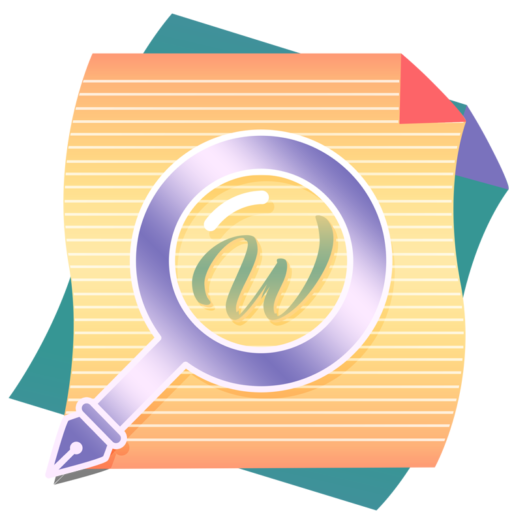Writer’s block is a common challenge that plagues writers of all levels, from novices to seasoned professionals. It’s characterized by a temporary inability to produce new work or make progress on existing projects. While frustrating, writer’s block is not insurmountable.
The Writeler Co. explores effective strategies to overcome this creative hurdle and reignite your writing passion.
Understanding Writer’s Block
Writer’s block is a frustrating and often debilitating condition where a writer is unable to produce new work or experiences a significant slowdown in their creative process. It can stem from various sources, including stress, perfectionism, or a lack of inspiration. Recognizing the emotional impact of writer’s block is essential for addressing and overcoming it effectively.
Emotions Highlighted When Your Mind’s Blocked:
- Frustration: The inability to produce work despite the desire to write can lead to intense frustration.
- Self-Doubt: Persistent writer’s block often causes writers to question their abilities and worth.
- Anxiety: The pressure to meet deadlines or expectations can heighten feelings of anxiety.
- Guilt: Writers may feel guilty for not being productive or meeting their own or others’ expectations.
- Despair: Prolonged writer’s block can lead to a sense of hopelessness and despair about one’s creative future.
Recognizing these underlying causes is the first step towards overcoming the block.
Proven Techniques to Overcome Writer’s Block
1. Change Your Environment
Changing your environment can be a powerful technique to overcome writer’s block, as it can stimulate new ideas and perspectives by breaking the monotony of your usual writing space [1]. A fresh setting can reduce distractions, alleviate stress, and inspire creativity, helping you to reconnect with your writing. By deliberately altering your surroundings, you can create a conducive atmosphere for productivity and innovation.
Tips and Tricks to Navigate Writer’s Block by Changing Your Environment:
- Visit a Café or Library: The ambient noise and change of scenery can provide a refreshing backdrop for writing.
- Work Outdoors: Nature can be a great source of inspiration and help clear your mind.
- Rearrange Your Workspace: Simply moving furniture or adding new decor can invigorate your writing space.
- Try a Co-Working Space: Being around other focused individuals can boost your motivation and productivity.
- Travel to a New Location: A short trip or vacation can offer new experiences and ideas, reigniting your creative spark.
2. Establish a Writing Routine
Establishing a writing routine is a crucial technique for overcoming writer’s block, as it helps to build consistency and discipline in your writing practice [1]. A regular schedule trains your brain to expect and prepare for writing sessions, reducing procrastination and increasing productivity. By committing to a routine, you create a structured environment that fosters creativity and sustained output.
Tips and Tricks to Navigate Writer’s Block by Establishing a Writing Routine:
- Set Specific Times: Dedicate particular times of the day for writing to build a habit.
- Create a Writing Ritual: Develop pre-writing rituals, such as making a cup of tea or listening to a specific playlist, to signal your brain that it’s time to write.
- Set Achievable Goals: Break down your writing into manageable tasks with clear, attainable goals.
- Use a Timer: Implement timed writing sessions (e.g., Pomodoro Technique) to maintain focus and manage time effectively.
- Track Your Progress: Keep a journal or log of your writing sessions to monitor your progress and stay motivated.
3. Use Freewriting and Brainstorming Techniques
Freewriting and brainstorming techniques are powerful tools for overcoming writer’s block by unleashing creativity and generating new ideas without the pressure of perfection [1][4]. These methods encourage uninhibited expression, allowing writers to bypass self-criticism and tap into their subconscious thoughts. By engaging in these exercises regularly, writers can break through mental barriers, discover unexpected connections, and reignite their creative spark.
Tips and Tricks to Navigate Writer’s Block Using Freewriting and Brainstorming Techniques:
- Set a Timer: Dedicate a specific time frame (e.g., 10-15 minutes) for uninterrupted freewriting to maintain focus.
- Write Without Editing: Allow your thoughts to flow freely without pausing to correct grammar or structure.
- Use Prompts: Start with a random word, phrase, or image to kickstart your freewriting session.
- Mind Mapping: Create visual diagrams to explore connections between ideas and uncover new angles.
- Collaborative Brainstorming: Engage in group sessions to benefit from diverse perspectives and build upon others’ ideas.
4. Break the Project into Smaller Tasks
Breaking a project into smaller tasks is an effective technique for overcoming writer’s block, as it makes the writing process more manageable and less overwhelming [2]. By focusing on one small section at a time, writers can build momentum and achieve a sense of accomplishment with each completed task. This approach helps to maintain motivation and clarity, ultimately leading to a more productive and organized writing experience.
Tips and Tricks to Navigate Writer’s Block by Breaking the Project into Smaller Tasks:
- Outline Your Work: Create a detailed outline to break down your project into smaller, specific sections.
- Set Mini-Deadlines: Assign deadlines for each small task to maintain a steady pace and track progress.
- Prioritize Tasks: Identify and tackle the most critical or challenging sections first to alleviate pressure.
- Use Checklists: Maintain a checklist of tasks to visually track your progress and stay organized.
- Reward Yourself: Celebrate the completion of each small task with a reward to stay motivated and positive.
5. Read for Inspiration
Reading for inspiration is a proven technique for overcoming writer’s block, as it exposes writers to new ideas, styles, and perspectives that can reignite their creativity [1]. By immersing themselves in the works of others, writers can find motivation, learn new approaches, and gain a fresh outlook on their own projects. This practice not only stimulates the mind but also provides valuable insights and techniques that can be applied to their writing.
Tips and Tricks to Navigate Writer’s Block by Reading for Inspiration:
- Explore Different Genres: Read a variety of genres to discover new styles and narrative techniques.
- Analyze Writing Techniques: Pay attention to how authors structure their work, develop characters, and build plots.
- Read Poetry: Poetry can offer unique perspectives and inspire creative language use.
- Join a Book Club: Engage in discussions with others to gain different viewpoints and insights.
- Read Non-Fiction: Non-fiction books, articles, and essays can provide factual inspiration and new ideas for your writing.
6. Exercise and Physical Activity
Exercise and physical activity are effective techniques for overcoming writer’s block, as they help to clear the mind, reduce stress, and boost overall mental well-being. Physical movement increases blood flow to the brain, enhancing cognitive function and creativity [6]. By incorporating regular exercise into their routine, writers can break through mental barriers and approach their work with renewed energy and focus.
Tips and Tricks to Navigate Writer’s Block with Exercise and Physical Activity:
- Take Regular Breaks: Incorporate short, frequent breaks for stretching or walking to refresh your mind.
- Practice Yoga: Yoga combines physical movement with mindfulness, helping to reduce stress and improve concentration.
- Go for a Run: Running can provide a mental break and often leads to creative breakthroughs.
- Try Aerobic Exercises: Activities like swimming, cycling, or dancing can boost endorphin levels and enhance mood.
- Engage in Team Sports: Playing sports with others can provide social interaction and a fun way to stay active.
7. Try Different Writing Tools or Methods
Trying different writing tools or methods is an effective technique for overcoming writer’s block, as it can introduce new ways of thinking and organizing thoughts [1]. Experimenting with various tools and approaches can help writers find what works best for them, making the writing process more enjoyable and productive. This flexibility can lead to fresh perspectives and renewed motivation to tackle writing projects.
Tips and Tricks to Navigate Writer’s Block by Trying Different Writing Tools or Methods:
- Use Writing Software: Explore different writing software like Scrivener or Ulysses to organize and streamline your work.
- Write by Hand: Switch from typing to handwriting to engage different parts of your brain and spark creativity.
- Voice-to-Text: Use voice-to-text tools to dictate your thoughts and ideas, bypassing the physical act of writing.
- Mind Mapping Software: Utilize mind mapping tools to visually organize your ideas and see connections more clearly.
- Experiment with Formats: Try different formats such as bullet journaling, storyboarding, or index cards to structure your writing in new ways.
8. Seek Feedback and Support
Seeking feedback and support is a valuable technique for overcoming writer’s block, as it provides new perspectives, constructive criticism, and encouragement. Engaging with others can help identify areas for improvement, spark new ideas, and boost confidence [4]. By connecting with a supportive community, writers can gain the motivation and insights needed to move past creative obstacles.
Tips and Tricks to Navigate Writer’s Block by Seeking Feedback and Support:
- Join a Writing Group: Participate in a writing group to share your work and receive constructive feedback from peers.
- Find a Mentor: Seek guidance from a more experienced writer who can offer advice and support.
- Attend Workshops: Enroll in writing workshops to improve your skills and gain fresh perspectives.
- Use Online Forums: Engage in online writing communities where you can ask for feedback and share experiences.
- Share with Friends or Family: Discuss your work with trusted friends or family members to gain their insights and encouragement.
Maintaining Momentum
Once you’ve overcome writer’s block, it’s crucial to maintain your progress:
- Celebrate small victories to build confidence and motivation
- Develop a growth mindset that views challenges as opportunities for improvement
- Learn from setbacks and use them as opportunities to refine your writing process
Remember that even experienced writers face periods of difficulty, and persistence is key to long-term success.
Writer’s block is a common challenge, but it doesn’t have to derail your writing aspirations. By understanding its causes and implementing proven techniques, you can overcome this obstacle and reignite your creativity. Remember to be patient with yourself and persistent in your efforts. With the right approach and mindset, you can break through writer’s block and continue to grow as a writer.
Are you still struggling with writer’s block or looking for professional writing assistance? The Writeler Co. is here to help! Our team of experienced writers and editors can provide personalized strategies to overcome writer’s block and elevate your writing. Whether you need help brainstorming ideas, structuring your work, or polishing your final draft, we’ve got you covered. Visit our website or contact us today to learn how we can support your writing journey and help you unleash your creative potential.
References:
[1] https://www.wordrake.com/blog/overcome-writers-block
[2] https://lumivero.com/resources/dealing-with-writers-block/
[3] https://www.brainbalancecenters.com/blog/exercise-boosts-creativity
[4] https://www.purdueglobal.edu/blog/student-life/7-ways-overcome-writers-block/
[5] https://www.forbes.com/sites/laurambrown/2019/04/23/whats-stopping-you-overcoming-writers-block-and-procrastination/
[6] https://www.theguardian.com/lifeandstyle/2024/mar/04/all-it-takes-is-a-quick-walk-how-a-few-minutes-exercise-can-unleash-creativity-even-if-you-hate-it




0 Comments